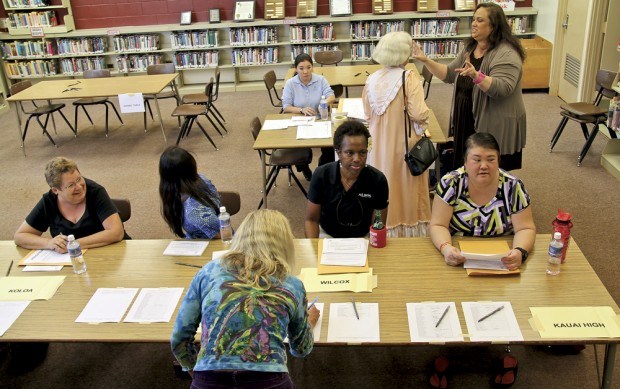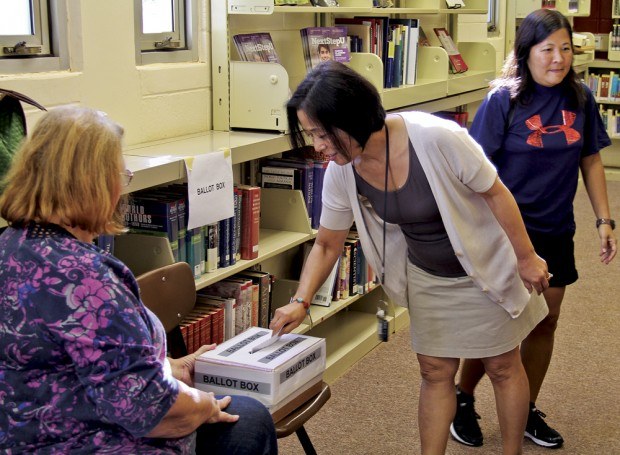The state’s teachers voted no Thursday on a new contract following months of negotiations, surprising one Kaua‘i teacher. “I thought it was going to be ratified,” said Melissa Hilson of Lihu‘e, a teacher at Kaua‘i High School, even though she
The state’s teachers voted no Thursday on a new contract following months of negotiations, surprising one Kaua‘i teacher.
“I thought it was going to be ratified,” said Melissa Hilson of Lihu‘e, a teacher at Kaua‘i High School, even though she voted no.
“I think our union could have done more for us in terms of salary. The teacher evaluation should have been clearly spelled out for us in the contract, and it wasn’t,” she said.
After a day at the polls by members of the Hawai‘i State Teachers Association, union president Wil Okabe posted the results on the union’s website.
“Only 33 percent of you voted yes, while 67 percent voted no,” Okabe wrote.
Okabe said he would go back to members Friday and listen to suggestions.
“Many of you have suggested that we return to the negotiating table,” he wrote. “Others of you believe a strike should be our next step. And still others have suggested that we continue with our legal challenges. Each of these points of view should be considered and discussed.”
Hilson was heartened by the comments.
“Hopefully, the union, like they say on the website, is going to listen to the teachers this time before they go back to the state for negotiations,” she said.
The vote attracted attention from beyond the islands because the U.S. Department of Education last month admonished Hawai‘i for “unsatisfactory” performance in fulfilling its Race to the Top promises and put a $75 million grant under “at-risk” status. This is the first time the department has placed that status on a state that won dollars distributed in the high-profile competition.
Hawai‘i education officials maintain some reforms have been slowed by the labor dispute. The two sides had reached a conceptual agreement before Hawai‘i was announced as a winner to tie half of a teacher’s evaluation to education gains made by students.
But the union is embroiled in a prohibited practice complaint it lodged against the state with the labor relations board. The union claims the state violated members’ rights by implementing its “last, best and final” contract offer over the summer.
Earlier this month an “agreement in principle” was announced, which includes moving to a performance-based compensation system. The grant’s status played a role in reaching that agreement.
One of the major deadlines the state missed was implementing financial incentives for teachers to work in “Zones of School Innovation” located in low-income, low-performing communities on O‘ahu and the Big Island.
While union leadership recommended ratifying the contract, Okabe was quoted saying he realized teachers were apprehensive about performance-based evaluations.
“There’s a sense of mistrust,” he said.
• The Associated Press contributed to this report.



